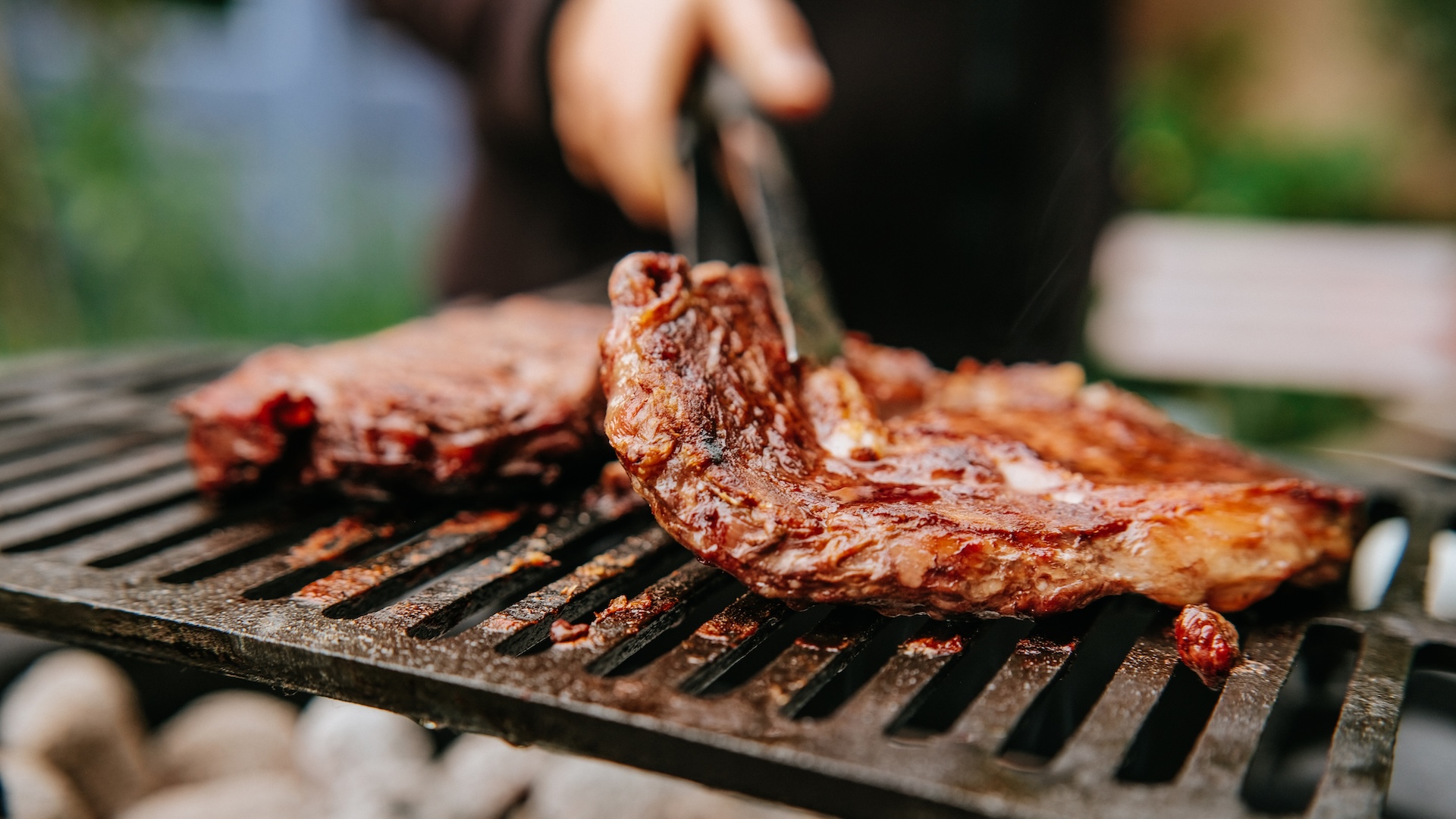
When you cook steak over the grill, it becomes firmer, turns brown and begins to give off an enticing smell. But exactly what is happening to the meat as it's being cooked?
"There's a lot of processes that go on," Wes Osburn, an associate professor of meat science at Texas A&M University, told Live Science. "It goes through a pretty complex series of chemical reactions."
One of these processes is called protein gelation. Proteins are structurally important in meats. They play a key role in holding water and in changing the texture of meat as it gets cooked. Meat proteins are divided into three main groups: myofibrils, which are the most abundant; sarcoplasmic proteins; and connective tissues, including collagen. When meat is heated, bonds within proteins are broken in a process called protein denaturation, which causes proteins to unfold and lose their shape.
Myofibrillar proteins begin to denature at around 104 to 158 degrees Fahrenheit (40 to 70 degrees Celsius). As heat continues to be applied, these proteins refold and form a "gel" — a 3D protein network that traps water and causes a slab of meat to firm up. The process is similar to building a structure with Tinkertoy dowels and spools, Osburn said.
"The more sticks that I can put into the wheel, and that's put into another wheel, the stronger, the firmer the texture is," he explained.
Related: When did humans start cooking food?
If heated too much, meat becomes too tough and dry, but continued heating will break down more proteins and cause the meat to become tender again. When heated above around 160 F (71 C) for a prolonged period, collagens also form a gel, giving slow-cooked meat its silky texture.
But what helps give cooked meat its signature savory, caramelized flavor is a series of chemical reactions collectively known as the Maillard reaction, which occurs when amino acids interact with sugars at temperatures above about 285 F (141 C). The Maillard reaction gives rise to hundreds of new flavor and aroma compounds. In terms of aroma alone, researchers have identified more than 880 compounds in cooked beef.
In another series of reactions, red meat changes color based on the transformation of a protein called myoglobin. Myoglobin remains partially intact when meat is cooked at lower degrees of doneness, giving it a pink or red color. But at around 170 F (77 C), the protein denatures completely, which turns the meat brown.
The rate and extent of chemical reactions that occur in meat change based on the cooking method, cooking length and temperature, Saleh Al-Ghamdi, an assistant professor and head of the Department of Agricultural Engineering at King Saud University in Saudi Arabia, told Live Science in an email. Dry-heat cooking methods — such as searing, roasting or grilling — enhance the Maillard reaction. Moist-heat cooking methods, like braising or stewing, tend to slow or stop the reaction. Flavor also changes based on a variety of other factors, including the breed, sex, diet and age Al-Ghamdi said. Meat aging, or the practice of waiting to cut uncooked meat, and stress of the animal at death can affect the flavor and tenderness too.
"A lot of it just depends upon the composition of the meat," Osburn said. "How much fat, water, protein is there? How much connective tissue is there? What's the pH? And then, how do you cook the product?"
Understanding which chemical reactions take place can help chefs determine which cooking method is best for certain cuts of meat. Beef chuck, for example, would be best cooked "low and slow" with a moist-heat cooking method. Chuck comes from a cow's shoulder and has a lot of collagen because it has been heavily used throughout the animal's life. Tenderloin, a long and lean muscle from the cow's back, would be best cooked more quickly with a dry-heat method to facilitate the Maillard reaction.







